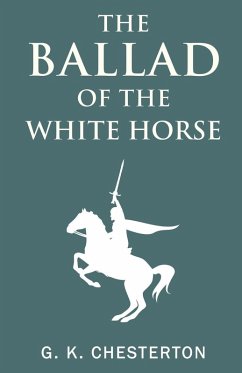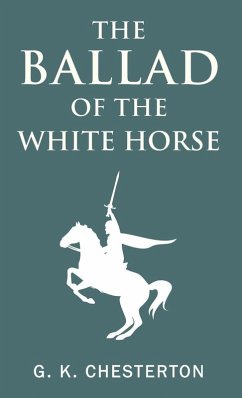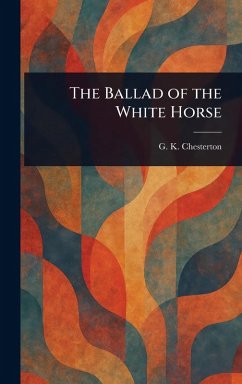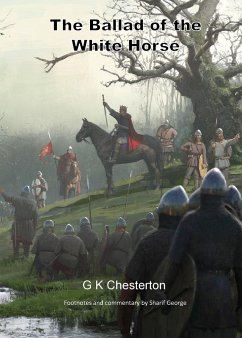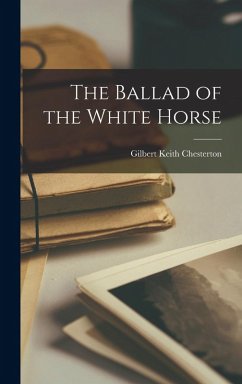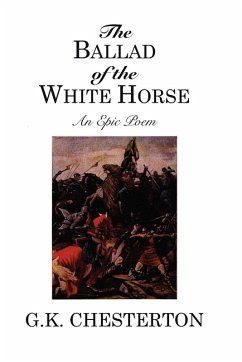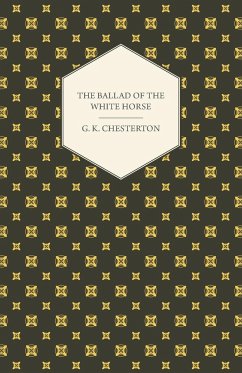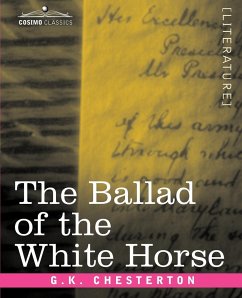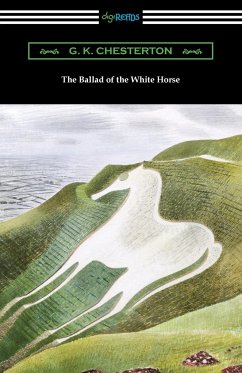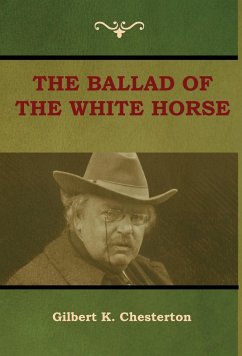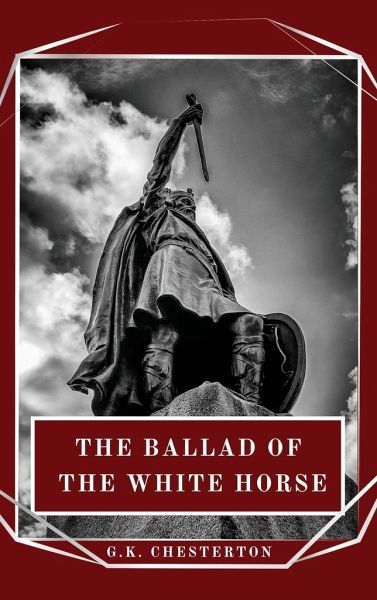
The Ballad of the White Horse
Versandkostenfrei!
Versandfertig in 1-2 Wochen
17,99 €
inkl. MwSt.

PAYBACK Punkte
9 °P sammeln!
The Ballad of the White Horse is one of the most important works of English literature. This large epic poem is a highly romanticized account of the adventures of King Alfred the Great, King of Saxon Britain and the battle of Ethandune (Edington ). It tells mainly the mythical and to some extent the historical past of the conflict between Christianity and the forces of paganism. This text continues to be a source of encouragement for Christians facing secular pressures. Its diversity, complexity and profoundness, the timeless themes of power, courage, love and faith, together make this poem on...
The Ballad of the White Horse is one of the most important works of English literature. This large epic poem is a highly romanticized account of the adventures of King Alfred the Great, King of Saxon Britain and the battle of Ethandune (Edington ). It tells mainly the mythical and to some extent the historical past of the conflict between Christianity and the forces of paganism. This text continues to be a source of encouragement for Christians facing secular pressures. Its diversity, complexity and profoundness, the timeless themes of power, courage, love and faith, together make this poem one of the most compelling and memorable works of world literature. As in the classical tradition of epic poetry (Homer's Odyssey, Virgil's Aeneid, Ferdowsi's The Epic of Kings, Beowulf) the poem is concerned with human values and moral choices. This book has entertained generations of readers, and it continues to be fascinating.LARGE PRINT EDITION





